Sinead Campbell from Flat Living Insurance looks at how you can create harmonious spaces for those living in high-density environments.
For leaseholders, block living can feel like close quarters. Sharing communal areas within the building, grounds, and parking areas, as well as any other shared amenities can be challenging. Small disagreements over etiquette and lease compliance can very quickly grow into full blown disputes.
For building managers, the time and energy that goes into handling issues between residents could be better spent elsewhere. Creating as harmonious a living environment as possible can help to avoid any conflict. Great decisions made by property managers ensure that all residents can enjoy the amenities they pay for and smooth the way for a sense of community within the block.
Here we’ll be discussing what property managers can do to improve communal areas and outdoor spaces to promote a harmonious living experience for their residents.
The Challenges of High Density Living
It’s important for block managers to be able to see things from the perspective of their leaseholders. Viewing the block through their eyes will build empathy and allow you to see where improvements could be made.
High on the list of challenges is the lack of personal space. Leaseholders are often residing in small flats- obviously this is not within a property manager’s control, but it’s important to recognise this as a factor in leaseholder behaviour. Much of their time at home may well feel less than spacious, leading to a sense of frustration if communal areas don’t feel suitable and accessible.
Next is the likelihood of noise and privacy issues. Flat living often means accepting that you will hear your neighbours. For some, this may be the odd door slam or short spells of irritating music. For others, the interruptions can be constant and detrimental to quality of life. It can also be difficult to maintain a sense of privacy if you know that conversations can be heard through thin adjoining walls…
Add to the above any tensions over the use of parking areas and you can expect some serious issues to erupt between neighbours. Limited spaces are common for urban areas, and if rules are being flouted by the few, the many will soon let you know about it.
What Can Property Managers Do with Indoor Spaces?
So, now we’ve painted a worst-case picture of what it can feel like to live in a leasehold flat, let’s go over some simple suggestions for improvement. The communal areas in your block should be seen as an opportunity to redress the balance.
Functional and aesthetically pleasing spaces are a must. Both attributes need to be kept in mind when designing or maintaining a space- whether that be a shared seating area, a garden, a gym or a car park. Leaseholders won’t feel comfortable using any amenities that don’t fulfil that brief.
If you can improve your spaces to be welcoming and to have a clear purpose, leaseholders will begin to use them, alleviating any sense of isolation or claustrophobia. Once people are utilising common areas, an inevitable sense of community will follow as conversations start and common ground is found.
If you’re lucky enough to have larger communal lounges or community areas, use them. Creating regular events and gatherings for residents is a great way to foster a sense of community and turn neighbours into friends that will look out for and be more understanding towards each other.
If you have limited space, consider using what you have for multiple functions. Ensure that the furnishings work for various setups and create a rota for use of the space by different groups for events or activities. This means that multiple demographics can use the space, and all will feel welcome.
What Can Property Managers Do with Outdoor Spaces?
Most blocks will have a car park to manage. Simple changes can make a huge difference in this area that’s rife with tension. Signage should be clear as day, policies (and the consequences for not following rules) should be clearly communicated to all residents, and modern technology should be used wherever possible:
- Intelligent lighting schemes can keep any security risks to a minimum alongside fully functioning CCTV.
- Modern solutions such as parking sensors can inform residents of free spaces or if the car park is full, saving them the frustration of circling car park themselves.
- Electric vehicle charge points allow residents the opportunity to do their bit for the planet without sacrificing convenience.
- A simple space allocation system along with visitor monitoring can save everyone the headache of arguing over spaces.
If you have grounds or gardens, encourage their use all year round. You can install a BBQ, create seating areas, or provide a children’s playground. If you don’t have much outside space, consider your options for bringing greenery indoors in the form of pot plants or ‘green walls’. You could even create a roof-top garden, creating a brand-new communal area for residents to enjoy.
Eco-minded residents would love to see their property managers embracing sustainable practices in outdoor spaces. Community gardens, rainwater harvesting, and energy-efficient lighting not only reduce environmental impact, but also foster a sense of responsibility and community among residents.
Maintaining Harmony Via Regular Maintenance
All of the effort put into creating great communal spaces will go to waste if they’re not properly maintained. No one wants to use a dirty gym with broken equipment, or unkempt garden in need of some TLC.
A regular cleaning schedule should be maintained, and regular inspections of each space should be a priority. Any maintenance needs reported by residents should be acted on as soon as possible, and any plans for large-scale overhauls should be clearly communicated.
If spaces are maintained beautifully, it’s likely that leaseholders will take pride in the building and do their part in keeping things clean and tidy. Resident satisfaction is also likely to be improved, along with the market value of the property.
Conclusion
Creating harmonious spaces in high-density living environments requires a thoughtful approach to design, maintenance, and community engagement. Communal areas, outdoor spaces, and parking facilities come together in shaping residents’ experiences.
By addressing challenges and seizing opportunities for development, property managers and residents can enjoy vibrant and sustainable high-density communities.
Flat Living Insurance arranges insurance for self-managed customers only, call us on 0333 577 2044 to get a quote for your block today.

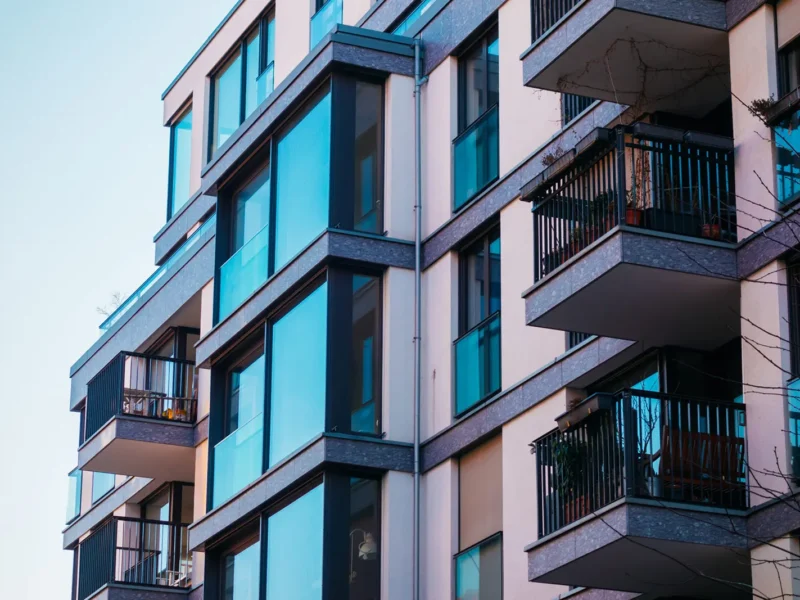



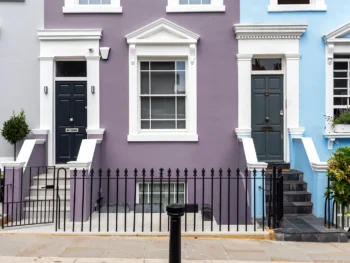
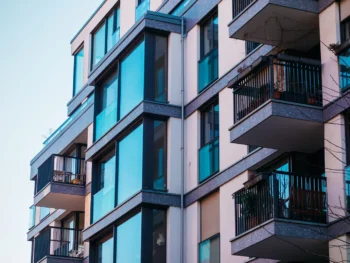
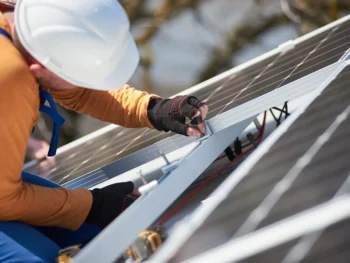
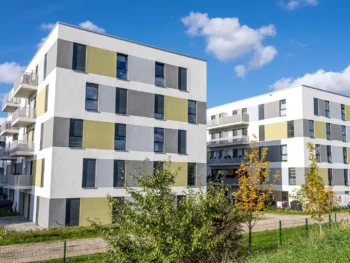


 Energy Efficiency and Sustainability Initiatives for Residential Properties
Energy Efficiency and Sustainability Initiatives for Residential Properties
Leave a Reply